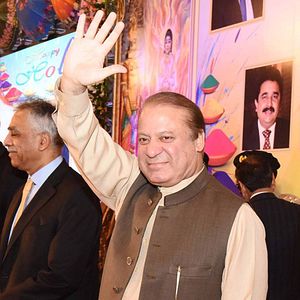On June 15, the Prime Minister of Pakistan, Nawaz Sharif, is scheduled to appear before the Panama Papers joint investigation team (JIT) which is probing the money laundering allegations against his family. A month ago, the Supreme Court of Pakistan in its judgment in the corruption case ordered the formation of a JIT to probe the case further.
The investigative body, which has previously questioned Prime Minister Sharif’s two sons, has been criticized by some for its harsh and unfair treatment of the ruling party’s leadership. However, others have described the investigation as rigorous and impartial, saying that it will lead to a just and final verdict.
The ongoing investigation underscores the divisive nature of Pakistan’s politics, where entrenched individuals and power structures dominate the national political arena. In the past, the subverting and undermining of institutions have been a part of the game.
While this will be the first time in Pakistan’s history that a sitting prime minister has appeared before a JIT, it’s folly to argue that the prime minister has agreed to sit before an investigative body only because the law requires him to do so. In Pakistan’s politics, it has always been a common practice that whenever political parties or other interests feel that their adherence to the rule of law might undermine their immediate personal or political interests, they have launched slanderous campaigns to subvert the authority and credibility of the investigative bodies and the institutions protecting them.
For example, in 1997, supporters of the the current ruling party, the Pakistan Muslim League Nawaz (PML-N), stormed the Supreme Court of Pakistan building where the court was holding proceedings in a contempt case against Sharif. Bodies that are constitutionally independent have come under increasing pressure by those seeking to politicize their work.
There are two reasons that explain why Sharif may have decided to appear before the JIT, a move which is being termed “historic” and “unprecedented.” First, with the next general election only months away, the ruling party is not interested in offering the political opposition any space to maneuver the prevalent corruption related debate in its favor. In fact, Sharif’s act of appearing before the JIT not only neutralizes any potential political point scoring scuffles but also wins him praise from legal and judicial quarters for staying true to the constitution and its principles. For instance, a federal minister belonging to the ruling party recently said that Prime Minister Sharif’s decision to appear before the JIT will “strengthen democracy in Pakistan.” Rather than explaining why the country’s prime minister is being summoned before a JIT in the first place and how he was lawfully required to do so if asked, the party has been working on spinning a narrative that declares Sharif an embodiment of democratic politics.
Second, the country’s political realities at present are far different than in the past and an isolated and embattled prime minister cannot circumvent the entire system. Sharif has little choice but to swallow the bitter pill of another round of investigation and court scrutiny. The prime minister’s decision to present himself for questioning is partially driven by his fear of his political opposition. Any protest — ranging from verbal to violent — by opposition political parties should Sharif avoid the court’s summons would not only appear a justifiable reaction, but would further damage Sharif’s remaining credibility.
Amid all this politicking, appearing before the JIT is a right decision to take as far as the party’s immediate political interests are concerned. However, it doesn’t mean that Sharif’s party has not been attempting to undermine the investigative body’s credibility. Last week, someone from the JIT committee leaked a picture of Hussain Nawaz, one of Sharif’s sons, as he appeared before the body. The ruling party and its support base across the country have been quick to nurture a narrative of victimhood and discrimination. One PML-N senator went as far as to threaten the investigative body’s members of the “dire consequences” of their inquiry. “You are making the life of the prime minister difficult. The Pakistani nation will make it difficult for you to live,” he said.
Moreover, other officials who are part of the case have raised questions about the credibility of the JIT and its members. If the investigation body is politicized and its credibility is put to question, then it prepares the ruling party to push back against a potentially unfavorable outcome.
Arguably, the entire bench that is hearing the case comprises members that reflect interests of different institutions, civilian as well as military. It’s hard to believe that by the end of the investigation a fair and impartial verdict will come out. In essence, the verdict will be reflective of a range of preferences and choices that suit the interests of different stakeholders involved in the process.
While the appearance of a sitting prime minister before a JIT is laudable as far as Pakistan’s judicial system is concerned, the country has a long way to go before its institutions truly become invulnerable to political pressures and attain independence.

































